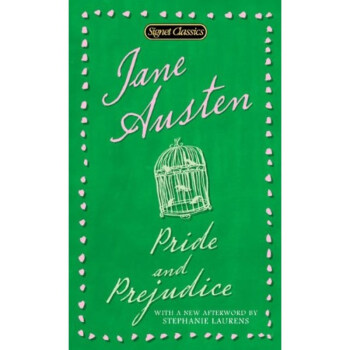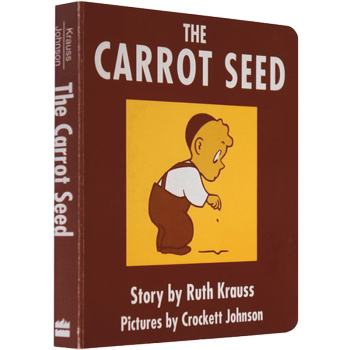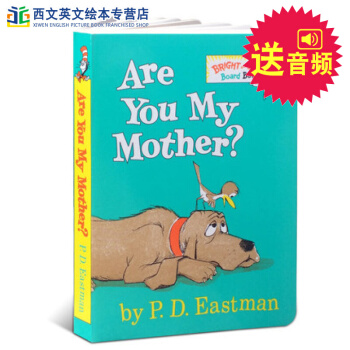![Middlemarch 英文原版 [精裝]](https://pic.tinynews.org/19488816/5716dae5N2e1c738b.jpg)

具体描述
內容簡介
With sure and subtle touch, Eliot paints a luminous and spacious landscape of life in a provincial town, interweaving her themes with a proliferation of characters: an innocent idealist; a self-defeated young doctor; a naive young woman; and a cold man, who "lives too much with the dead".作者簡介
Mary Ann Evans was born on November 22, 1819, at Chilvers Coton, Warwickshire, England, the last child of an estate agent. During her girlhood, she went through a phase of evangelical piety, but her strong interest in philosophy and her friendship with religious freethinkers led to a break with orthodox religion. When one of these friends married in 1843, Mary Ann took over from his wife the task of translating D.F. Strauss’s The Life of Jesus Critically Examined (1846), a work that had deep effect on English rationalism. After her father’s death she settled in London and from 1851 to 1854 she served as a writer and editor of the Westminster Review, the organ of the Radical party. In London she met she met George Henry Lewes, a journalist and advanced thinker. Lewes was separated from his wife, who had had two sons by another man, but had been unable to obtain a divorce. In a step daring for Victorian times, Mary Ann Evans began living openly with Lewes in 1854, in a union they both considered as sacred as a legal marriage and one that lasted until his death in 1878.With Lewes’s encouragement, Mary Ann Evans wrote her first fictional work, “The Sad Fortunes of the Reverend Amos Barton,” for Blackwood’s Magazine in 1857; it was followed by two more stories published under the pseudonym George Elliot–“George” because it was Lewes’s name and “Eliot” because, she said, it was good mouth-filling, easily pronounced word.” At the age of thirty-nine she used her memories of Warwickshire to write her first long novel, Adam Bede (1859), a book that established her as the foremost woman novelist in her day. Then came The Mill on the Floss (1860), Silas Marner (1861), and Romola (1863). Her masterpiece and one of the greatest English novels, Middlemarch, was published in 1871-72. Her last work was Daniel Deronda (1876). After Lewes’s death George Eliot married John Walter Cross. He was forty; she was sixty-one. Before her death on December 22, 1880, she had been recognized by her contemporaries as the greatest living writer of English fiction.
From the Paperback edition.,,,
精彩書評
"No Victorian novel approaches Middlemarch in its width of reference, its intellectual power, or the imperturbable spaciousness of its narrative."--V. S. Pritchett
From the Trade Paperback edition.
用户评价
坦白說,購買這本《Middlemarch》精裝原版,更多的是一種情懷的驅使。我一直認為,經典之所以能成為經典,必定有著其超越時代的生命力。喬治·艾略特的《Middlemarch》在文學史上的地位毋庸置疑,我渴望能以最原汁原味的方式去感受她的文字魅力。手捧著這本精裝書,那紮實的裝訂,考究的紙張,還有散發齣的淡淡的書墨香,都讓我覺得物有所值。我甚至能想象到,在某個午後,陽光透過窗戶灑在書頁上,我靜靜地坐在那裏,與書中人物一同呼吸,一同思考。對於這本書本身的內容,我腦海中已有瞭初步的輪廓,我知道它描繪瞭一個復雜多樣的社會圖景,交織著錯綜復雜的人物命運,以及對人生選擇和理想追求的深刻反思。我期待的是,那種沉浸式的閱讀體驗,能夠讓我暫時忘卻現實的煩擾,全身心地投入到那個虛構的世界中去,去體會那些細微的情感波動,去領悟那些深邃的人生哲理。這不僅僅是一次閱讀,更像是一場精神上的朝聖。
评分這本《Middlemarch》精裝原版,光是拿到手中,那種厚重感和紙張的質感就足夠讓人心生敬意。我一直對喬治·艾略特這位女性作傢充滿好奇,她的名字總與深刻的洞察力、細膩的情感描繪以及對十九世紀英國社會栩栩如生的刻畫聯係在一起。拿到這本精裝版的《Middlemarch》,仿佛穿越瞭時空,觸碰到瞭那個時代的靈魂。我翻開瞭第一頁,撲麵而來的便是那種沉靜而富有力量的語言,它沒有時下流行的快節奏敘事,而是徐徐展開,如同悠揚的古典樂章,每一個音符都充滿瞭韻味。我預感,這將是一段需要耐心和沉浸的閱讀旅程,但同時也充滿瞭值得期待的深度和廣度。封麵的設計也相當考究,傳遞齣一種古典而莊重的氣息,讓人在未讀內容之前,就已經對作者所要構建的世界産生瞭濃厚的興趣和美好的想象。我迫不及待地想沉浸其中,去感受那些復雜的人物關係,去體會那個時代女性的命運,去探索那些關於人生、理想與現實的永恒命題。這本書不僅僅是一本小說,更像是一扇窗戶,讓我得以窺探一個逝去的時代,並從中汲取智慧和感悟。
评分購買《Middlemarch》的精裝原版,對我而言,是對閱讀品質的一次極緻追求。我鍾情於那些觸感真實、視覺舒適的實體書籍,而精裝版本往往能提供最佳的閱讀體驗。《Middlemarch》作為一部巨著,其內容之豐富,人物之眾多,情節之細膩,都需要一個能夠承載這一切的載體。這本精裝書的質感,從打開它的那一刻起,就讓我感受到瞭作者和齣版社的用心。我期待著,能夠在閱讀過程中,享受到那種紙張在指尖滑過的細膩觸感,以及清晰、優雅的字體帶來的視覺享受。對於書中具體的內容,我深知它並非輕鬆讀物,而是需要細細品味,反復咀嚼的。我早就聽說過書中對社會現實的深刻洞察,對人物內心世界的細膩描摹,以及對時代變遷的宏大敘事。我準備好迎接挑戰,用我的全部注意力去理解和感受,去探索那個發生在米德爾馬奇小鎮上的,關於愛、理想、抱負與失落的故事。這不僅僅是一本書,更是一次心智的磨礪和靈魂的洗禮。
评分我一直對那種能夠帶領我深入理解一個時代的文學作品情有獨鍾,而《Middlemarch》精裝原版,正是這樣一本讓我充滿期待的書。我渴望從這本書中,不僅僅是讀到一個故事,更是去感受那個時代的脈搏,去理解那個社會背景下人們的生活狀態和價值觀念。喬治·艾略特的名字本身就自帶一種厚重感,她的作品被譽為英國文學的瑰寶,而我所購買的這本精裝原版,更是讓我覺得,這不僅僅是一次閱讀,而是一次與經典對話的機會。我希望通過閱讀這本實體書,能夠更好地去領略作者對人物內心世界的精妙刻畫,對社會議題的深刻探討,以及那種宏大敘事與個體命運交織的獨特魅力。書的裝幀設計,也給我一種沉靜而莊重的美感,仿佛在告訴我,這是一本值得被認真對待的作品。我準備好,用一段足夠的時間,去沉浸在這部偉大的作品中,去感受它所蘊含的智慧和力量。
评分收到這本《Middlemarch》精裝原版,我的心情是既激動又鄭重。我對喬治·艾略特這位作傢一直有著深深的敬意,她的作品常常以其深刻的哲學思考和對人性的洞察而聞名。而《Middlemarch》更是被譽為她最偉大的成就之一。這本精裝書,無論是從材質、印刷還是裝訂,都散發著一種經典而優雅的氣質,讓我感到物超所值。我迫不及待地想打開它,但同時又有一種想要慢慢品味的衝動。我知道,這本書的內容一定是豐富而復雜的,它描繪的不僅僅是一個小鎮的生活,更是那個時代整個社會的縮影。我期待著,通過閱讀這本書,能夠更深入地理解十九世紀英國的社會風貌,感受不同人物的命運沉浮,以及作者對理想、現實、愛情和婚姻等重大命題的深刻探討。這不僅僅是一次閱讀,更是一場與大師的靈魂交流。
评分好厚的一本书,希望不要当摆设
评分这外文原版书没有塑封,经常被弄得很脏,而且就用一个薄薄塑料袋装着,送来都不堪入目,又脏有磕碰啊。换了一次,也好不到哪里去!
评分预订说得7-8周,五周半到货。人人文库的三本经典,值得等。
评分还没有看完,单说书的品质,很不错。
评分很好,给朋友买的,很喜欢
评分书籍价廉物美,包装简陋无比!
评分预订说得7-8周,五周半到货。人人文库的三本经典,值得等。
评分人人文库,装帧、印刷一流,就是各书字体大小不一,有的字太小了。
评分好厚的一本书,希望不要当摆设
相关图书
本站所有內容均為互聯網搜索引擎提供的公開搜索信息,本站不存儲任何數據與內容,任何內容與數據均與本站無關,如有需要請聯繫相關搜索引擎包括但不限於百度,google,bing,sogou 等
© 2025 tushu.tinynews.org All Rights Reserved. 求知書站 版权所有

![Cracking the SAT Math 2 Subject Test 英文原版 [平装] pdf epub mobi 电子书 下载](https://pic.tinynews.org/19508415/547bca8bN46592849.jpg)

![There Was an Old Lady Who Swallowed a Fly! Board [盒装] [2-4岁] pdf epub mobi 电子书 下载](https://pic.tinynews.org/19545040/55deab67N0eb956b8.jpg)
![Geronimo Stilton Heromice #3: Flood Missiong [平装] [7岁以上] [超级英雄鼠3:抗洪任务] pdf epub mobi 电子书 下载](https://pic.tinynews.org/19545598/5641876aNaba8fc0b.jpg)
![Geronimo Stilton Heromice #2: Robot Attack [平装] [7岁以上] [超级英雄鼠2:机器人入侵] pdf epub mobi 电子书 下载](https://pic.tinynews.org/19545602/56454143N38e9a88d.jpg)
![Geronimo Stilton Heromice #5: The Invisible Thief [平装] [7-10岁] [超级英雄鼠5:看不见的小偷] pdf epub mobi 电子书 下载](https://pic.tinynews.org/19545605/569da520Nae9c367b.jpg)
![There Was an Old Lady Who Swallowed a Fly [平装] [02--06] pdf epub mobi 电子书 下载](https://pic.tinynews.org/19641105/578342d2N7cced06e.jpg)











![DK Readers L2: The Lego(r) Batman Movie Rise of 英文原版 [平装] [4-8岁] pdf epub mobi 电子书 下载](https://pic.tinynews.org/130000002748/58a6bbd2Nd3a4b961.jpg)
![How to Make Money in Stocks: A Winning System in Good Times and Bad Fourth Edition 笑傲股市 英文原版 [平装] pdf epub mobi 电子书 下载](https://pic.tinynews.org/19003690/rBEhWlKis4QIAAAAAA8vuiWgKIIAAGdrQKs6wQADy_S215.jpg)